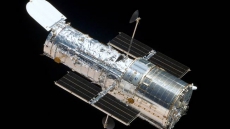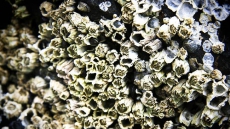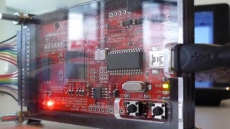Exploiting the electron's tiny magnetic moment or 'spin', scientists have discovered a new method to efficiently generate and control currents based on the magnetic nature of electrons in semi-conducting materials - offering a radical way to develop a new generation of electronic devices.
"We borrowed 50-year-old semiconductor phenomena for our modern spintronic research. Our results are the start of the story but are a proof of principle with a promising future for spins," said Hidekazu Kurebayashi from University College London's centre for nanotechnology.
Electrons have two properties - charge and spin.
Current technologies use charge but it is thought that spin-based technologies have the potential to outperform the 'charge'-based technology of semiconductors for the storage and process of information.
"The spin-Hall effect helps generate 'spin currents' which enable spin information transfer without the flow of electric charge currents," Kurebayashi added.
New research showed how applying an electric field in a common semiconductor material can dramatically increase the efficiency of the spin-Hall effect which is key for generating and detecting spin from an electrical input.
The scientists reported a 40-times-larger effect than previously achieved in semiconductor materials, with the largest value measured comparable to a record high value of the spin-Hall effect observed in heavy metals such as Platinum.
"This demonstrates that future spintronics might not need to rely on expensive, rare, heavy metals for efficiency, but relatively cheap materials can be used to process spin information with low-power consumption," Kurebayashi noted.
Unlike other concepts that harness electrons, spin current can transfer information without causing heat from the electric charge, which is a serious problem for current semiconductor devices.
Effective use of spins generated by the spin-Hall effect can also revolutionise spin-based memory applications, researchers maintained.
The study appeared in the journal Nature Materials.





